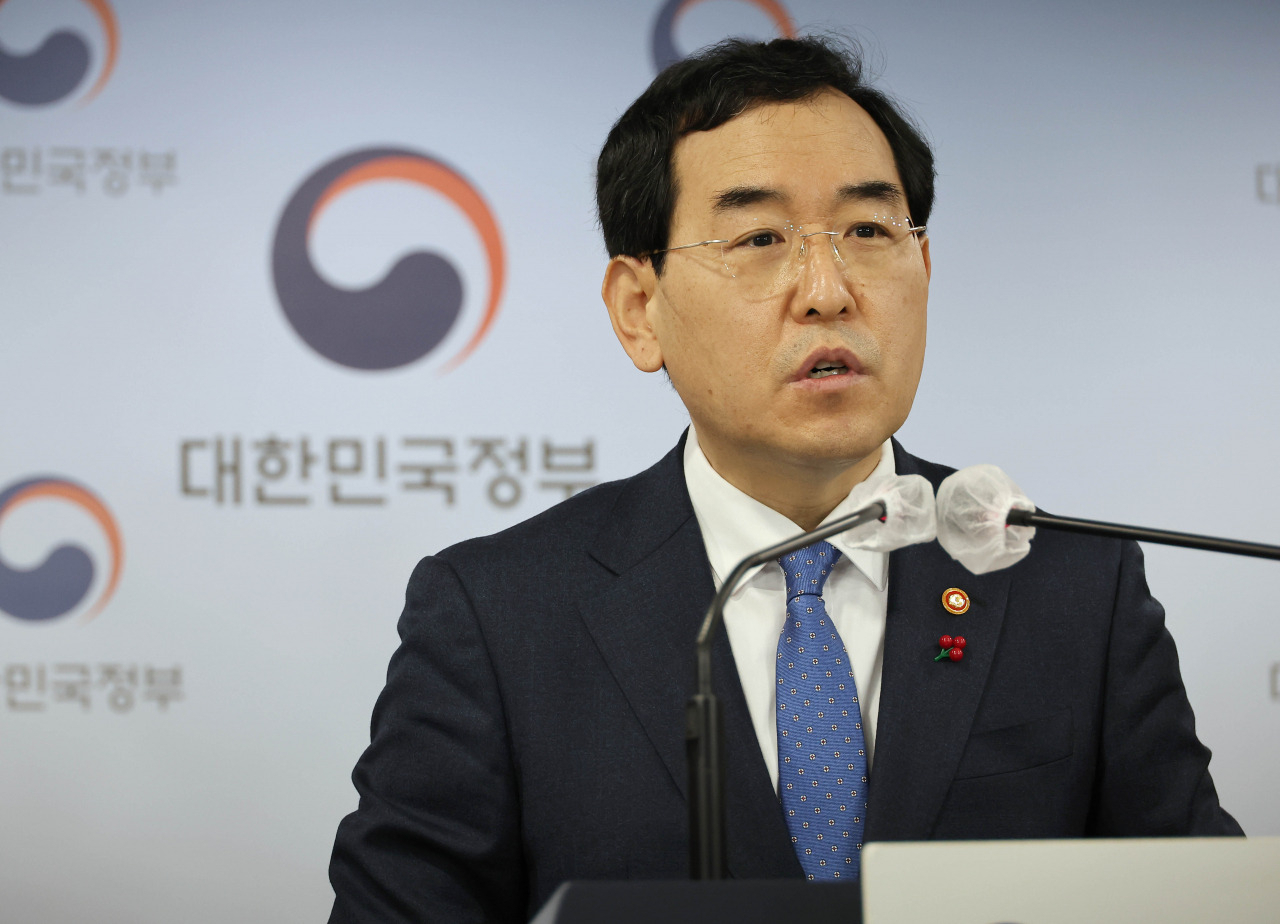Korea vows all-out efforts to fight trade deficit
Government reiterates will to support export-driven industries amid prolonged trade deficit
By Jo He-rimPublished : April 3, 2023 - 15:20

Experiencing a trade deficit for more than 13 consecutive months, South Korea will make pangovernmental efforts to lead a turnaround in trade, introducing support programs to foster key industries, the Trade Ministry said Monday.
The Ministry of Trade, Industry and Energy said it held a trade inspection meeting in Seoul with related government agencies to find ways to deal with the continuing fall in trade.
“While the country logged a massive trade deficit in January, the balance is gradually recovering. We need to make more efforts to expand export and improve energy efficiency for a turnaround,” Trade Minister Lee Chang-yang said.
“We should push harder for speedy execution of the budget and to offer close support to address difficulties industries face.”
Amid a global economic slowdown and weak demand, the country witnessed its export fall for the sixth consecutive months in March.
Outbound shipments recorded $55.1 billion in the month, down 13.6 percent on-year, according to the ministry. Imports declined by 6.4 percent on-year to record $59.7 billion, resulting in a monthly trade deficit of $4.62 billion.
In January, the country witnessed a record deficit in trade, with exports logging $46.2 billion, down 16.6 percent on-year. The trade deficit recorded an all-time monthly high of $12.69 billion in the month.
The combined export volume of the past three months is $151.5 billion. For the government to achieve this year’s export goal of $685 billion, the country has to report at a monthly average of $59.3 billion in exports until December.
The ministry attributed the weak trade performance to the steep decline in semiconductor exports, which declined 34.5 percent in March on-year as the global chip market suffers from prolonged falling demand and chip prices.
In a bid to raise the export volume, the government agreed to make full-fledged efforts and to come up with policies to foster key industries.
South Korea has announced the National Strategic Technology Nurture Plan, aimed at fostering six strategic industries -- semiconductors, batteries, displays, robots, biopharmeceuticals and mobility -- and helping them maintain a technological and competitive edge in the global market.
The government said it will also promote high-level talks with trading partner countries to build business partnerships.
During the meeting, the ministry and related agencies also discussed ways to reinvigorate trade with Japan, as the two countries recently agreed to mend ties after years of disputes.
South Korean President Yoon Suk Yeol and Japanese Prime Minister Fumio Kishida held a bilateral summit on March 16, where they agreed to drop trade disputes. Tokyo announced it would lift export controls on high-tech materials crucial for semiconductors to South Korea. In turn, Seoul withdrew its complaint to the World Trade Organization over the trade curbs.
"As Korea and Japan recover their ties following the summit, we will work hard to make sure that the improved ties help (Korean companies) expand their presence in the Japanese market," the trade minister said.
Reviewing the government’s achievements up until this month at the meeting, the ministry cited the first state-led business delegation to the United Arab Emirates in March that resulted in a $2 billion contract related to national defense and five cooperation agreements. In the same trip, the delegation also signed an agreement with Saudi Arabia to export Korea’s $30 million smart farming technology, the ministry said.
The country also established a consortium with Poland on defense, setting the ground for a second round of exports of K-2 tanks and K-9 howitzers, the ministry added.







![[Graphic News] More Koreans say they plan long-distance trips this year](http://res.heraldm.com/phpwas/restmb_idxmake.php?idx=644&simg=/content/image/2024/04/17/20240417050828_0.gif&u=)
![[KH Explains] Hyundai's full hybrid edge to pay off amid slow transition to pure EVs](http://res.heraldm.com/phpwas/restmb_idxmake.php?idx=644&simg=/content/image/2024/04/18/20240418050645_0.jpg&u=20240419100350)






![[From the Scene] Monks, Buddhists hail return of remains of Buddhas](http://res.heraldm.com/phpwas/restmb_idxmake.php?idx=652&simg=/content/image/2024/04/19/20240419050617_0.jpg&u=20240419175937)

![[KH Explains] Hyundai's full hybrid edge to pay off amid slow transition to pure EVs](http://res.heraldm.com/phpwas/restmb_idxmake.php?idx=652&simg=/content/image/2024/04/18/20240418050645_0.jpg&u=20240419100350)

![[Today’s K-pop] Illit drops debut single remix](http://res.heraldm.com/phpwas/restmb_idxmake.php?idx=642&simg=/content/image/2024/04/19/20240419050612_0.jpg&u=)